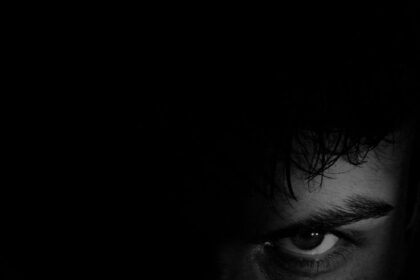Motherhood: An Experience
It was one of the darkest nights of my life. I held my newborn in my arms as tears streamed down my face. It was the night of my first wedding anniversary. I should have been happy. I should have been grateful, but I wasn’t.
My baby was only nine days old, yet all I could feel was pain, sadness, and a crippling sense of hopelessness. My entire life, from how I should be feeling to how I must act, was being dictated by others.
I was angry, lonely, and helpless when seemingly I had no reason to be feeling that way. I was equally clueless as those around me, perhaps a bit more. My son had not slept through a single night, nor had I. He would start crying hysterically all of a sudden and wouldn’t calm down for hours, no matter what I did.
My brain was numb, my body ached, and the scar from the C-section hurt so bad that getting up on my own felt impossible.
Duties and Challenges:
A different kind of anxiety kicked in the moment I gave birth and hasn’t left since. The anxiety of something bad happening to him if I let him out of my sight.
This anxiety was one of the reasons I couldn’t sleep. I was unable to trust him with anyone else, not even my own motherwho had kept me safe since I was his age. The only person that I was ready to rely on was busy celebrating his son’s arrival, dealing with the never-ending stream of guests, and hosting grand feasts. My husband was the only person who could make me feel better but it felt like he had vanished as a partner. Whenever he would visit, I would burst into tears, but he could not understand the changes—the physical, mental, and emotional changes—that I was experiencing. This gap of mutual understanding led to me feeling stranded, utterly alone and without support.

The Lived Reality of Postpartum Depression:
Having been a medical student earlier on, I had studied about “postpartum depression” but had not encountered someone going through it before.
I had heard tales about women who killed themselves shortly after childbirth because ‘some supernatural creature’ had possessed them. The narrative around these women had always been that of shame, with little insight into the mental health aspect of these tragedies. An investigation into the causes was farther still.
Comparing my knowledge of the illness with the symptoms that I was experiencing post childbirth, I woke up to the harsh reality of how serious this condition was. With this came the realization of a total lack of awareness in the society in this regard. It became clear that the knowledge of women’s health had not been integrated into the education system properly, not to the right extent anyway, as even highly qualified people had little idea of the gravity of the situation. This had resulted in insufficient care for new mothers due to their caretakers not being equipped with the relevant tools.
I had learned, in theory, that separation anxiety, or ‘postpartum blues,’ as they called it, may last a few weeks after birth and that it would get better with time. What I wasn’t told was that if left untreated, postpartum depression could last from months to years, leading to volcanoes of rage and sadness, ready to erupt at any moment when triggered and burning everything in the way, including your own child.
I can confidently say that the experience of motherhood is totally different for everyone, specifically for those with a history of mental illness.

What Needs to be Done?
It is immensely important to have awareness about postpartum depression and to communicate with your partner and family members about what could possibly happen and how you are going to handle family chores, the responsibility of a newborn, and the new mother.
It is more essential, still, to define clear boundaries, duties, and authority after consulting with the woman who is going to give birth.
From the moment of conception until the birth of the child, women’s bodies go through a roller coaster of hormones. After giving birth, the body and the mind both need time, support, and the right kind of diet and environment in order to recover fully.
Women who give birth through C-section lose double the amount of blood as compared to vaginal deliveries, hence leading to even more weakness. Cesarean section is a major surgery and involves cutting into seven layers of your body, which needs two to three years before it completely heals.
A lack of vitamin B12, vitamin D, and iron can also make you tired, clumsy, sad, and sleep deprived. So, in addition to the emotional and physical support, you need to focus specifically on your diet, hydration, and exercise. Breastfeeding also decreases the symptoms of depression by increasing the level of cortisol hormone in the brain.
An underdeveloped country like ours needs special measures to create awareness programs focusing on the importance of care and support systems for women by their families and workspaces.
Working women should be provided with paid maternity leave for at least three months and quality daycare centers so that they can fulfill their career responsibilities alongside taking care of the newborn.
In our society, due to a lack of knowledge and awareness, ambiguous boundaries, and the stubbornness of older family members to stick to the rotten traditions of older times, millions of women are suffering from mental abuse and postpartum depression, some resulting in death.
The prevalence of postpartum depression ranges from 28 to 63 percent in Pakistan. According to a study, one in every eight women suffers from its symptoms.
It is high time that we take into consideration the gravity of this disease and take measures from familial to government levels in order to prevent the suffering of new mothers and infants as well.

















since I am new mother, I can relate to each and every aspect of the literature. I am happy to know someone worthy like Dr Maryam is there to put words on our feelings.